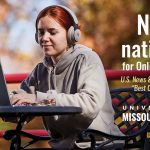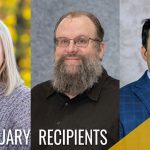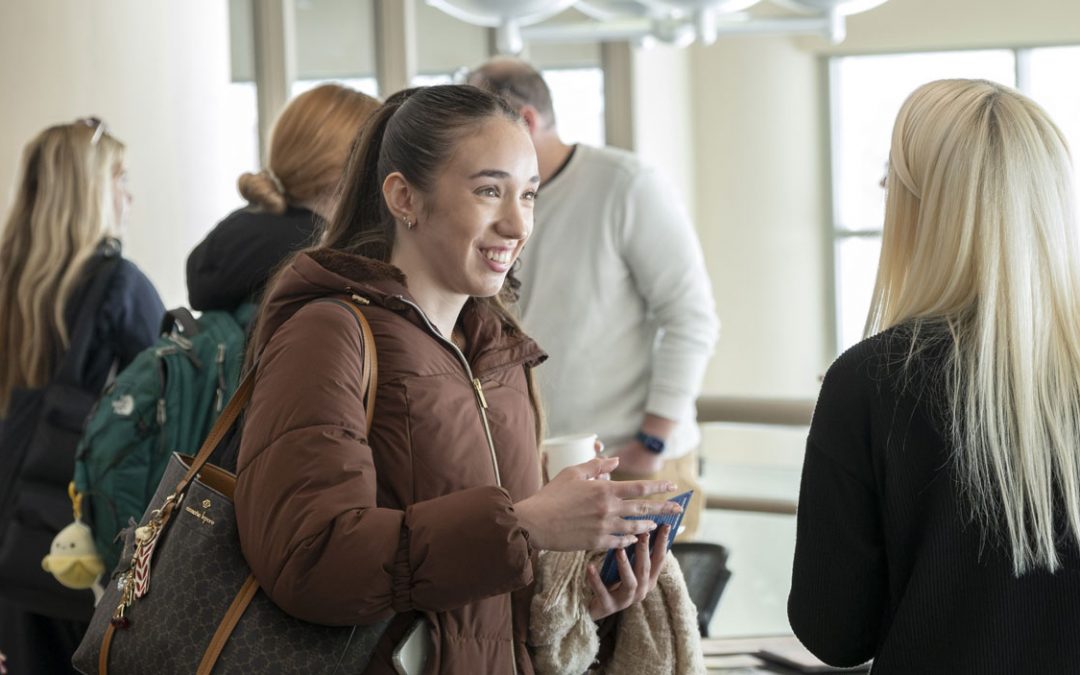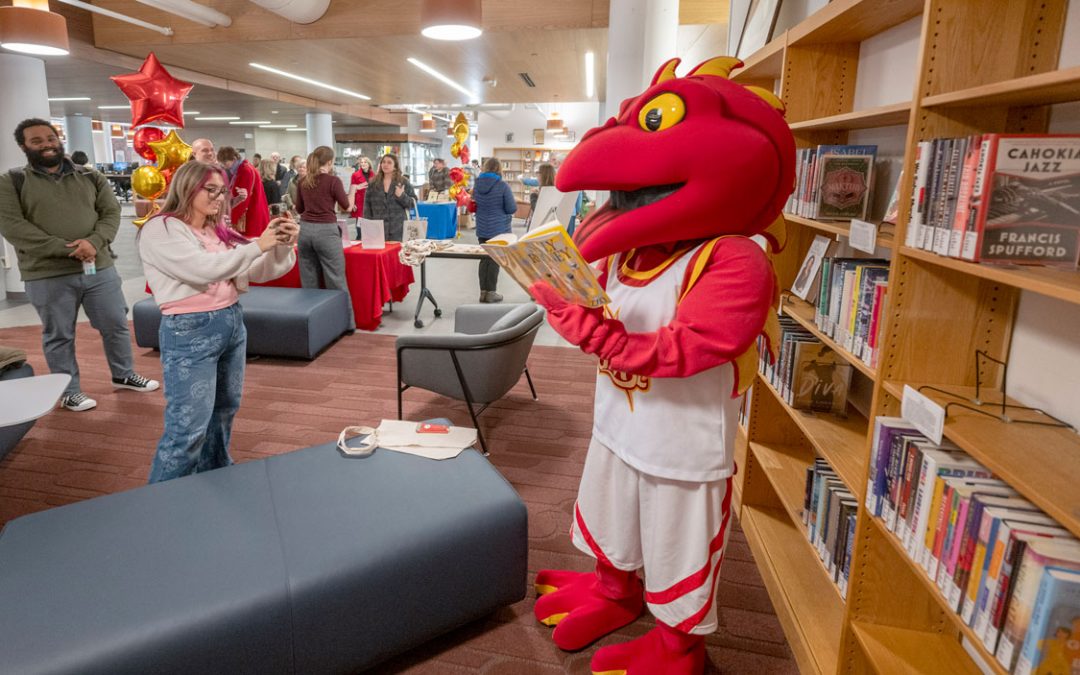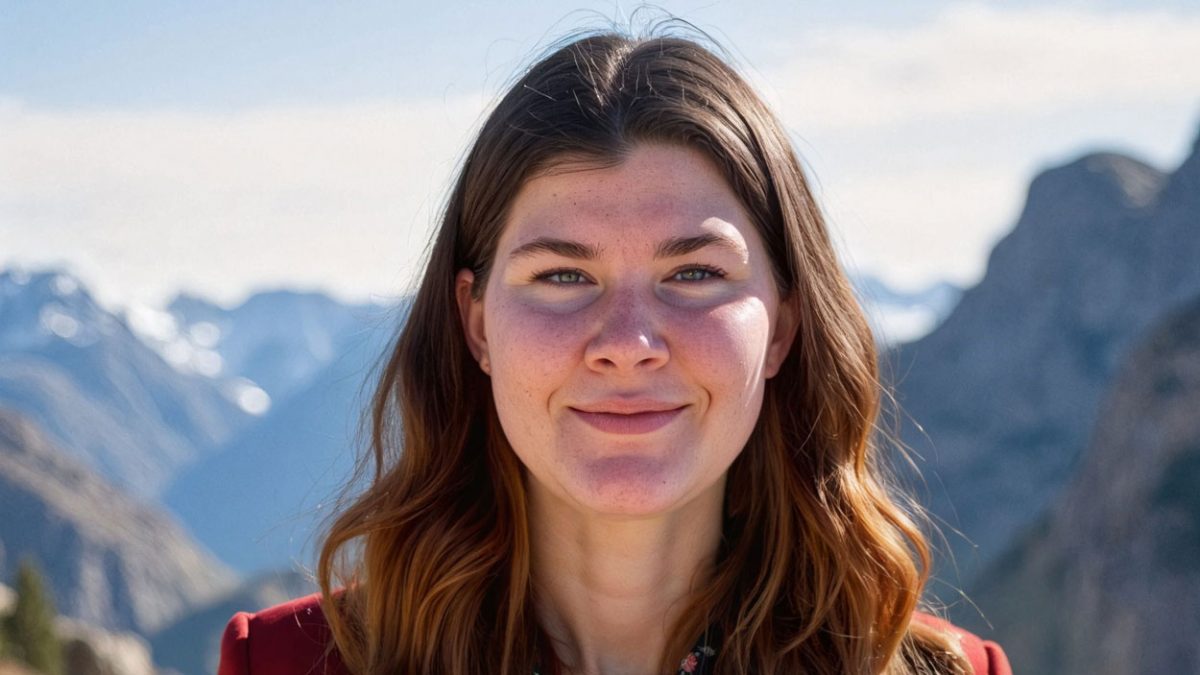
Roselie Woodard earned her DNP from UMSL’s College of Nursing in August. In March, she’ll start a new position as an outpatient psychiatric nurse practitioner at Serenity Mental Health Centers. (Photo courtesy of Roselie Woodard)
Roselie Woodard has now walked in three different commencement ceremonies, having received two bachelor’s degrees – one in psychology and one in nursing – from other universities before completing her Doctor of Nursing Practice in August from the College of Nursing at the University of Missouri–St. Louis. But when she walked across the stage at the Mark Twain Athletic Center at the December commencement ceremony, it felt a little more impactful.
“It was kind of surreal,” she said. “I think this one hit differently, just knowing that I’m actually done completely and that I’m able to use this degree toward what I’ve always wanted to do, which is to be a nurse practitioner.”
Woodard has known for a long time that she wanted to have a career where she could help people improve their mental health. In high school, a psychology course, for which she earned college credit through UMSL’s Advanced Credit Program, immediately struck a chord.
“It just felt like it was what I was meant to be doing,” she said. “It always felt like it had an extra aspect of intrigue for me compared to anything else that I had ever studied.”
Woodard’s UMSL experience eventually came full circle when she joined the College of Nursing’s DNP program. Despite the fact that the program is almost entirely online, Woodard developed a close-knit group with her peers, who talked at least weekly and connected in person during several on-campus intensives. She admits the program was emotionally challenging, particularly while working on her final project, but receiving the Jeanne O’Grady Memorial Fellowship made a huge difference. Several College of Nursing faculty members, including Assistant Teaching Professor Britannia Phillips, who served as Woodard’s graduate advisor, also provided valuable support.
“I just don’t think that I would have been able to do it without them, frankly,” Woodard said. “I worked very closely with Dr. Phillips, and I cannot overstate the support and the passion that she has toward all of the students.”
Woodard landed on the topic for her project, “Self-Harm in Female Youth with Undiagnosed ADHD: Implementing American Academy of Pediatrics Screening Guidelines,” when she noticed a gap in how screening guidelines from the American Academy of Pediatrics were being implemented in diagnosing ADHD for female youth with a history of self-harm. “It really aims to improve early identification of ADHD in females who have a history of self-harm, because females are so often overlooked in ADHD diagnosis,” Woodard said. “Basically, I took this guideline and used evidence from the American Academy of Pediatrics and adhered that to a more clinical protocol for screening to enhance the efficiency of diagnosing.”
Woodard’s pilot project was admittedly small, with only six participants, but she believes it could easily be replicated and serve as a model for future quality improvement initiatives. Participants were first screened for ADHD using the Conners 4 tool, a tool used to assess ADHD in children and adolescents, and those who had a high likelihood of ADHD then went on to complete a comprehensive ADHD assessment. Of the six participants, three eventually tested positive for ADHD. “The results really did highlight the importance of that early ADHD screening, based on that marker of having a history of self-harm,” Woodard said. “It just demonstrated that implementing the AAP guidelines in that way can improve the accuracy and efficiency of ADHD identification in clinical practice.”
Woodard believes the research also has real-world applications. At the end of the project, the nurse practitioner she worked with expressed interest in continuing to use the Conners tool as well as Q-global, a data collection tool Woodard used for the project, in her practice.
Although she knew it was something she needed to do to become a well-rounded DNP, Woodard wasn’t initially that excited to complete a project as part of her coursework. Looking back, though, she said her perspective has changed dramatically.
“I just feel so much excitement about having been able to contribute to the field of mental health through the way that this project played out,” she said. “I expected the DNP program to give me a lot of knowledge and to learn a lot more about how to take care of my patients. But I think that what I didn’t expect, that I gained a lot of as well, is just a change in perspective and outlook about how I see the field and how I see my role in it.”
Since graduating in August, Woodard, who now lives in Colorado, successfully passed her boards and began applying for her license and interviewing for jobs. In March, she’ll start a new position as an outpatient psychiatric nurse practitioner at Serenity Mental Health Centers. She’ll conduct full ADHD diagnostic evaluations and oversee medication management for patients, as well as procedures including transcranial magnetic stimulation and ketamine therapy for patients with treatment-resistant psychiatric diagnoses. Woodard is excited to grow in the role and continue to learn and absorb as much as she can to get better at what she does.
“It’s been such a culmination over the years of building the knowledge that I’ve gained through these programs,” she said. “I have worked bedside in various psychiatric units, but that has always felt like a step along the way to becoming a psychiatric provider. I am really looking forward to being able to help patients in a different way and being the one using the diagnostic procedures to determine the best treatment regimens. I am excited to see the outcomes of that and know that I had the first hand in it.”
Woodard its grateful for her experience in the DNP program and said the challenges she overcame along the way made her stronger in many ways, changing her perspective on her work ethic and building a lot of excitement for the future.
“I feel like what UMSL and my previous degrees have provided me has left me with an enormous amount of potential,” she said. “I feel like UMSL prepared me as best as I can be for this new job. I’m just excited to see what that will bring and to continue growing in this new phase of my career.”










